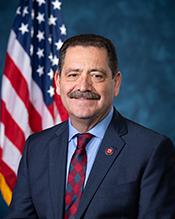0
Giving Disadvantaged Businesses Opportunities for Success Act
12/15/2023, 3:54 PM
Congressional Summary of HR 832
Giving Disadvantaged Businesses Opportunities for Success Act
This bill revises the Department of Transportation (DOT) Disadvantaged Business (DBE) program and Airport Concession Disadvantaged Business Enterprise (ACDBE) program.
Specifically, the bill requires the DOT to increase the maximum personal net worth allowable for participation in both programs to account for any inflation that has occurred since the most recent increase to $1.32 million.
The bill further aligns the size limits for small businesses eligible for the programs with the Small Business Administration's size standards. It also excludes certain assets such as the equity applicants have in their primary residence from the calculation of an applicant's net worth under the programs.
The bill also reauthorizes through FY2028 the DOT Minority Resource Center, which supports minority enterprises in obtaining business opportunities.
Large participants in the DBE or ACDBE programs (e.g., state departments of transportation, hub airports) must have mentor-protégé programs that include certain outcome measures. States also must recognize another state's certification of a business under either program.
Additionally, the bill establishes an awards program to recognize program participants that meet specified criteria for excellence.
The bill establishes reporting requirements and standards related to waiving or exempting certain requirements of the programs, and it establishes an advisory committee to make policy recommendations for the programs.

